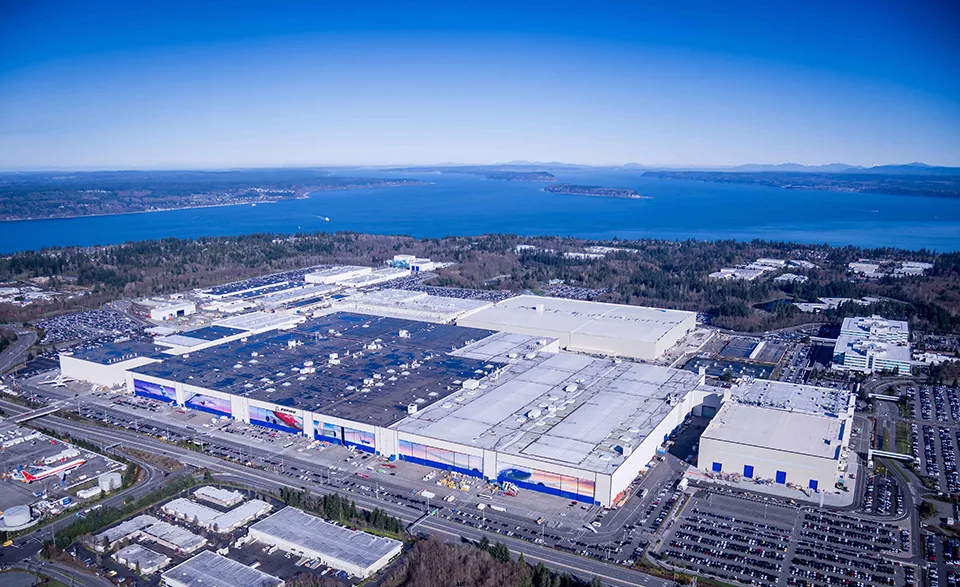
Boeing outlines a sustainable future for aerospace
Jul 26, 2021

Boeing is actively shaping a sustainable future for the aerospace industry through innovative approaches and technologies. The company is investing in the development of eco-friendly aircraft, focusing on reducing emissions and improving fuel efficiency. By exploring alternative fuels and enhancing manufacturing practices, Boeing aims to minimize its environmental footprint. Collaborations with industry partners and governmental bodies further emphasize its commitment to sustainability. Additionally, Boeing is integrating advanced materials and digital solutions to optimize operations and promote responsible resource usage. Through these initiatives, Boeing seeks to lead the way in creating a greener, more sustainable aviation ecosystem for future generations.
Boeing has taken significant strides in outlining a sustainable future for the aerospace industry, emphasizing its commitment to innovation and environmental stewardship. The company recognizes the critical role it plays in reducing carbon emissions and promoting sustainability within the aviation sector. This article delves into Boeing's strategies and initiatives aimed at achieving a greener future for aerospace.
Innovative Technologies Driving Sustainability
Boeing is at the forefront of integrating innovative technologies designed to enhance the sustainability of its aircraft. Key areas of focus include:
- Advanced Aerodynamics: Utilizing cutting-edge design to minimize drag and improve fuel efficiency.
- Lightweight Materials: Incorporating composite materials that reduce the weight of aircraft, leading to lower fuel consumption.
- Hybrid-Electric Propulsion: Exploring hybrid systems that combine traditional engines with electric power, significantly reducing emissions.
Commitment to Sustainable Aviation Fuel (SAF)
One of the most promising avenues for reducing the aviation industry's carbon footprint is the adoption of Sustainable Aviation Fuel (SAF). Boeing is actively involved in the development and certification of SAF, which can reduce lifecycle carbon emissions by up to 80%. The company collaborates with various stakeholders, including fuel producers and airlines, to expedite the availability and use of SAF globally.
Partnerships and Collaborations
Boeing understands that achieving sustainability goals requires collaboration across the industry. The company has formed strategic partnerships with governments, NGOs, and other aerospace leaders to promote sustainable practices. Some notable collaborations include:
| Partner | Focus Area | Goals |
|---|---|---|
| United Nations | Climate Action | Promote global efforts to reduce aviation emissions. |
| Airlines for America | SAF Development | Increase the availability of SAF within the U.S. |
| NASA | Innovative Technologies | Research and develop new technologies for sustainable flight. |
Investment in Research and Development
Boeing's commitment to sustainability is reflected in its substantial investment in research and development (R&D). The company allocates resources to explore new technologies that can further reduce emissions and improve the efficiency of its aircraft. Key R&D initiatives include:
- Alternative Energy Sources: Investigating hydrogen fuel cells and battery technology for future aircraft.
- Noise Reduction Technologies: Developing quieter engines and airframe designs to mitigate noise pollution.
- Digital Solutions: Utilizing data analytics and AI to optimize flight routes and operational efficiency.
Regulatory Compliance and Industry Standards
As part of its sustainability efforts, Boeing is committed to adhering to international regulations and industry standards aimed at reducing emissions. The company actively participates in forums and discussions to shape policies that promote environmental responsibility in aviation. Boeing's adherence to the ICAO Carbon Offset and Reduction Scheme for International Aviation (CORSIA) is a testament to its commitment to global sustainability efforts.
Community Engagement and Education
Boeing recognizes that sustainability goes beyond technology and regulations; it also involves engaging with communities and educating the next generation of aerospace professionals. The company has implemented various outreach programs focusing on:
- STEM Education: Supporting science, technology, engineering, and mathematics education initiatives to inspire future innovators.
- Environmental Awareness: Conducting workshops and seminars on the importance of sustainability in aviation.
- Community Projects: Partnering with local organizations to support environmental conservation efforts.
Conclusion: A Vision for the Future
Boeing's roadmap for a sustainable future in aerospace is ambitious yet achievable. Through innovative technologies, strategic partnerships, and a strong commitment to sustainability, the company is paving the way for a greener aviation industry. As airlines and manufacturers work together to embrace sustainable practices, Boeing stands ready to lead the charge toward a more sustainable future for aerospace.
In conclusion, Boeing's efforts to promote sustainability in the aerospace sector are commendable. By focusing on key areas such as Sustainable Aviation Fuel, advanced technologies, and community engagement, the company is not only addressing the environmental challenges of today but also ensuring a responsible and sustainable aviation future for generations to come.
Related Articles

Explore Thailand: The Best Islands to Visit for Paradise, Adventure, and Relaxation

The Ultimate Guide to the Best Islands in Thailand for Your Next Getaway

Do babies need passports? How to get a passport for a newborn

How to get a U.S. passport fast: here’s how to expedite the process

What is Mobile Passport Control: 5 reasons why you should use it

SENTRI vs. Global Entry: A detailed guide

Do you need a passport to go to the Bahamas? Let’s find out

Do you need a passport to go to Mexico? A detailed guide

Do you need a passport to go to Canada? We got the answer

Do You Need a Passport for a Cruise: An Essential Travel Guide

Booster Seat Requirements: All the Rules to Follow in Your Rental Car

What Are the World’s Most Powerful Passports, and How Does Yours Rank?

How to Take a Passport Photo at Home: A Helpful Guide

You've got to have heart! Southwest's new livery

Your opinion: Should water be free on low cost carriers?

Young women bolder than guys as solo travellers
